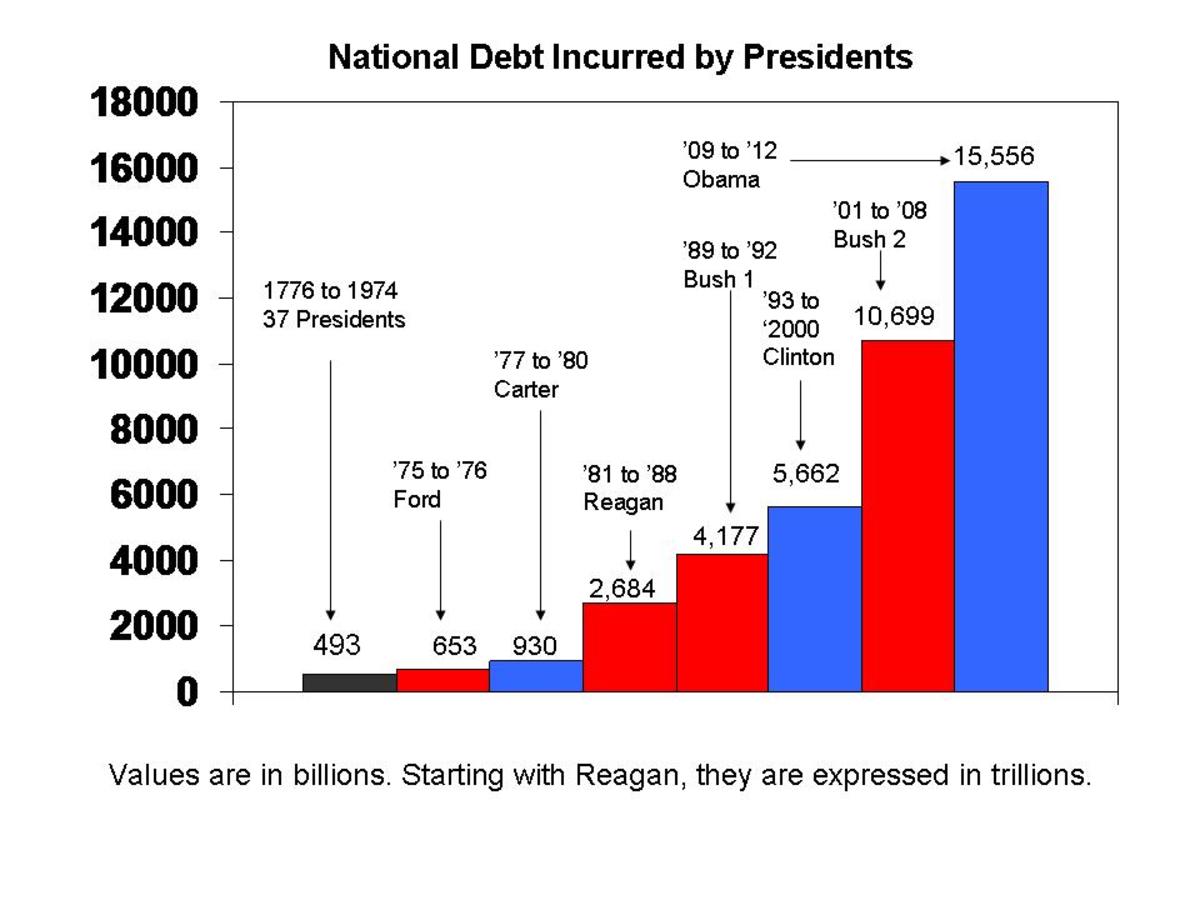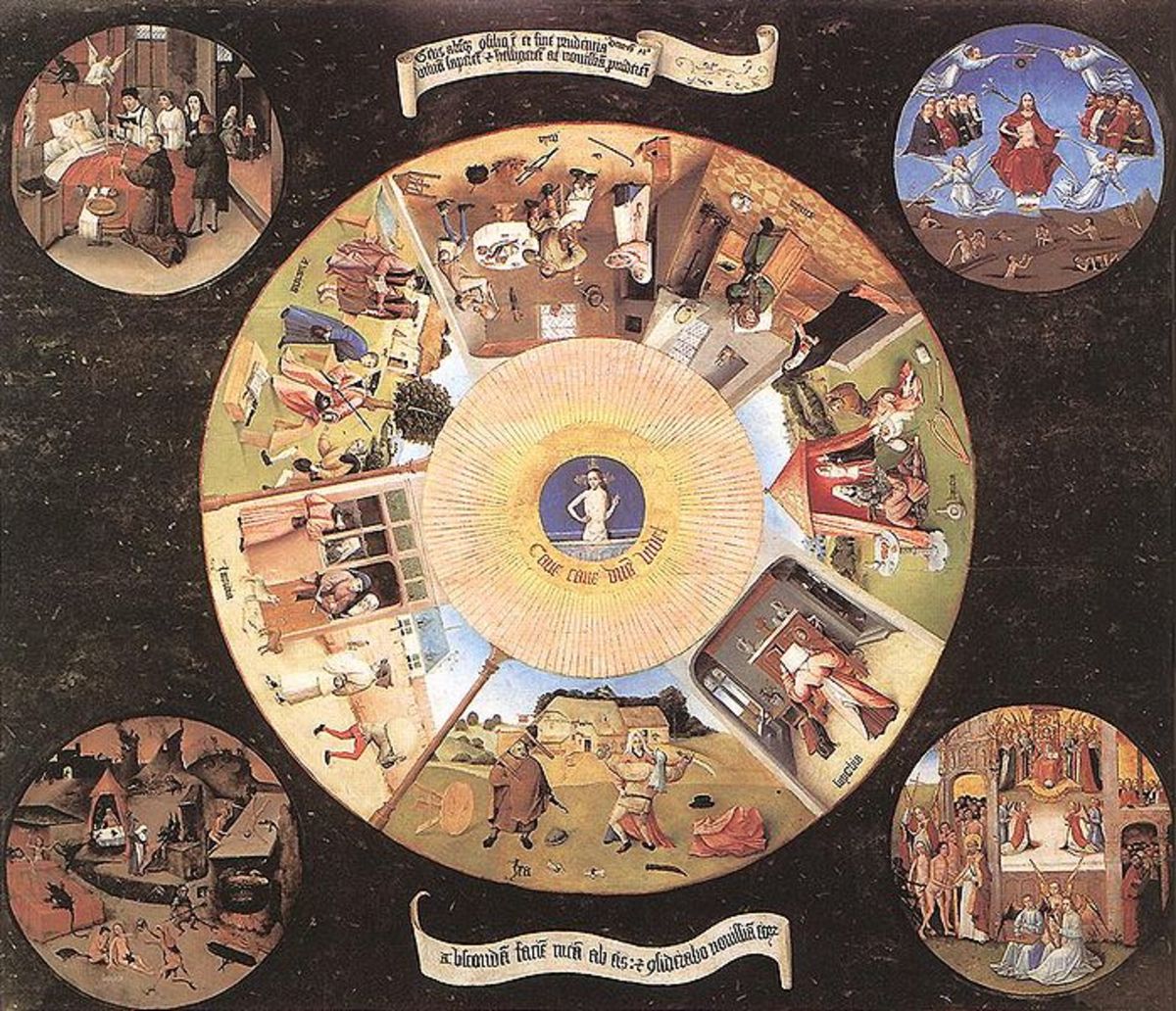Balanced Budget - How to Balance the Federal Budget Now
Balanced Budget Plan - U.S. Economy
The United States is currently running huge budget deficits. Current plans to balance the budget are totally insufficient. Worse yet, the economy is so addicted to the easy money created by federal spending that it will contract as the government begins to reduce excess spending. This will actually result in less tax receipts.
The federal government is like a morbidly obese man with hypoglycemia eating several pounds of junk food every day and then trying to lose weight by switching to a diet soda. It just doesn't work. He then tries to cut his calorie intake below his caloric expenditures. This results in low blood sugar and a lowered metabolism. His body thinks it is starving and he still can't lose weight. At this point, drastic measures are needed. He needs to go on a near fast with absolute minimum calories to return to a healthy weight. Once he is at a healthy weight, then he can switch to a balanced diet.
Increasing taxes will actually slow the economy down and actually result in less revenue as wealth moves to less usurious countries. The only way to save the United States is to drastically reduce federal spending and create a balanced budget.
Here is what we need to do now to balance the budget:
- Eliminate Medicare and Medicaid: Health care should be dealt with at the state level where local governments can determine the specific care needed for their area. This would eliminate a huge amount of waste and fraud. It would also create a set of competing markets between states. State governments would learn better ways to manage health care needs by observing other states and adopting the best models.
- Close Foreign Bases: The world has changed a lot since many of these foreign bases were built. Our military is currently capable of dealing with any threat without the need for these bases.
- End War on Drugs: We spend billions of dollars every year on this war. It wastes a huge amount of resources. Worse yet, we often end up supporting the families of those locked up. We should not only end the war on drugs, but pardon everyone convicted of a drug related offense and release them. We could close half of our federal prisons. This would also add over a million potential workers to the population. It would get many of their families off welfare.
- Eliminate ATF and DEA: Ending the war on drugs would eliminate the need for the DEA. Alcohol and tobacco regulation would be turned over to the states. Firearm regulation would be turned over to the FBI.
- Eliminate Redundant Programs: There are myriads of federal programs and subsidies that should be transferred to the states. Most of these programs could be ran more efficiently at the state level.
- Eliminate Federal Student Loans and Grants: This program probably paid for itself in the past with increased tax revenue, but it is obsolete now. The excess money is only making college more expensive as students compete with more money. Shady trade schools take advantage of the easy money, leaving their students without marketable skills.
- Eliminate Federal Pensions: The problem with pensions is that they produce unknown liabilities. They make promises based on a far unknown future. Worse yet, they create a favored social class with superior retirement plans. Simply eliminate them and transfer their funding to the social security department. Current employees would begin paying social security. Federal retirees should collect social security like everyone else. If they want a better retirement, then they should invest part of their earnings in a private plan.
Social Security would be left alone since it is theoretically solvent with its huge trust fund. The food stamp program would prevent starvation and allow people to survive the necessary years of hardship until the economy recovers.
These budget cuts would cause pain for a while, but they are needed to remove the sickness that is pervading our economy. The private sector would begin to take over these functions that were originally dealt with inefficiently by the federal government. State budgets would get healthier and any problems that the free market can't solve could be solved at the local level.
Economic pain is in our nation's future. It is inevitable. Our nation must decide whether to endure it now or to endure much worse years later.








